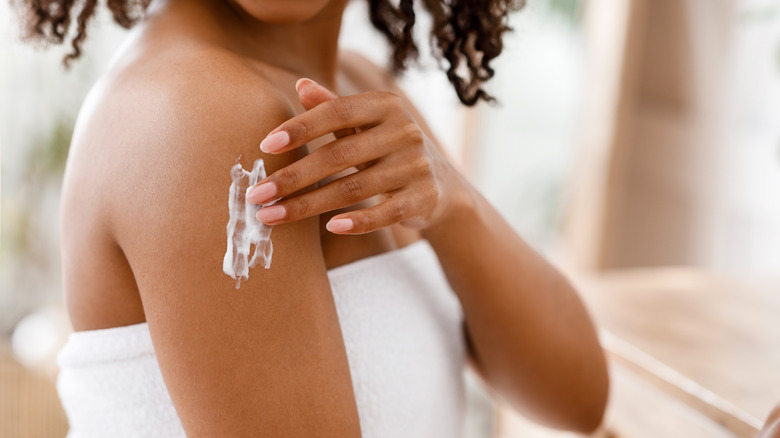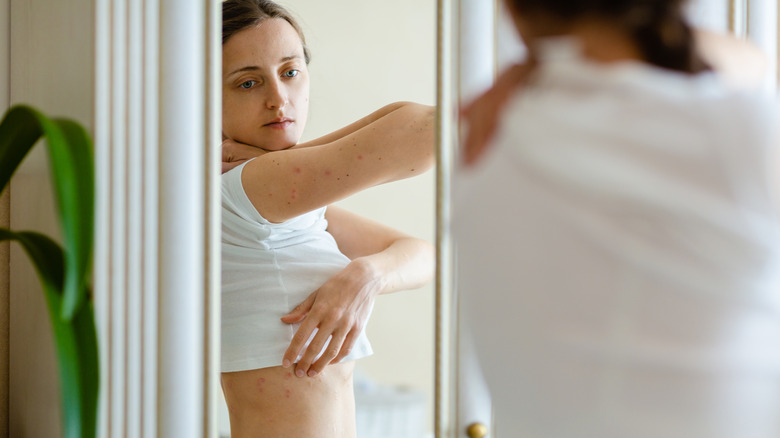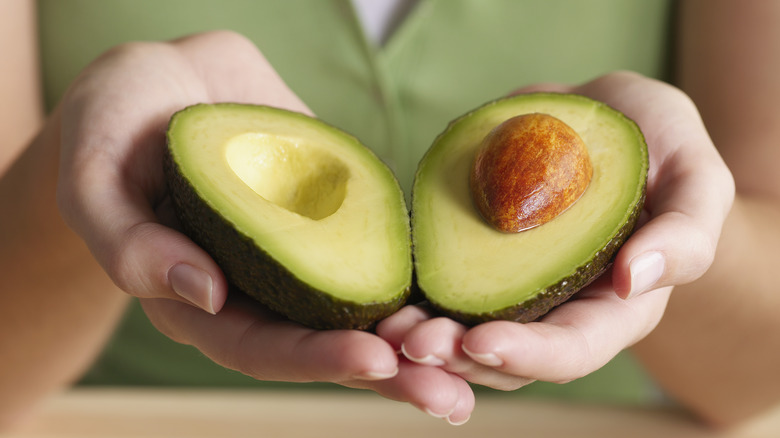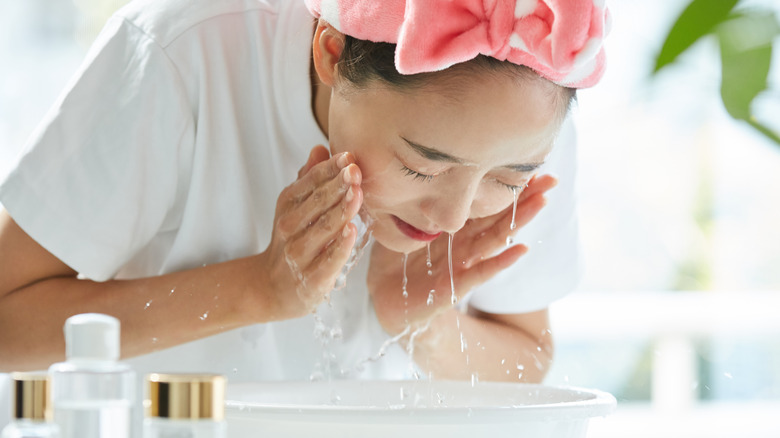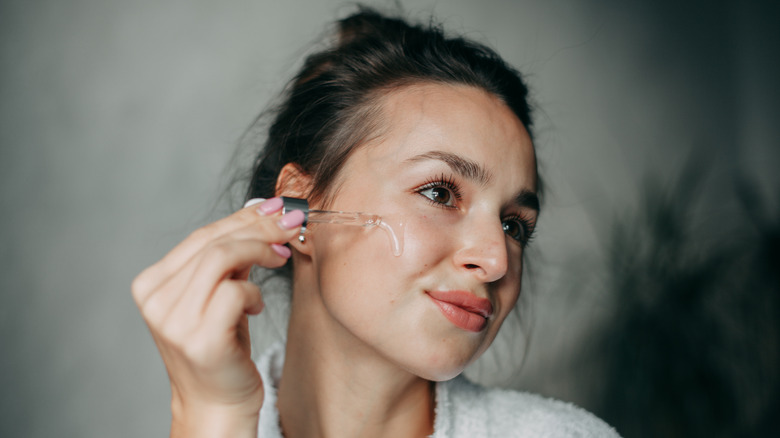Signs Your Skin Barrier Needs A Little Extra TLC
Call it the aftershock of post dry, winter seasons, or starvation after strings of sleepless nights. Whatever the case, your skin's natural moisture barrier endures so much during its lifetime that it will, emphasis on will, let you know when it is irritated. After all, your skin is like a puppy, a loveable attention hog. It requires constant care through hydration and nutrients to keep it healthy, youthful, and well-nourished.
Sticking to this analogy, this puppy, when upset, can retaliate quickly and harshly, though it's not uncommon to experience such hate-love relationship episodes with your skin. After all, we all get to share in the honor of living life, which includes aging and seasonal changes. Still, with this accomplishment comes anti-love letters from our skin, warning us of a lack of support, especially in less-than-ideal situations: chapped hands, rashes, and fine lines.
It's bad enough that your skin can retaliate on you like a toddler in their terrible twos, but what happens before that breaking point? Could and should our skin warn us when it's in desperate need of some TLC?
What causes damage?
Kiehls states that the moisture barrier refers to the epidermis, which is the top layer of skin. It's held together by thousands of cells, proteins, and lipids. As expected from such a large organ, it carries out roles crucial to bodily health and development. Among them are detoxing pollutants, protecting from sun damage, and maintaining hydration. It's no surprise then that many ingredients are needed for dewy skin all year long, in order to keep the skin barrier bouncy and bacteria-free.
So, what happens when the skin barrier is damaged? Infection is more likely to seep in through the skin, especially through chapped cracks or inflamed rashes. Acts that contribute to barrier unbalance are cosmetic as they are organic: environmental conditions like excessive sun exposure and drastic temperatures heavily impact barrier health. The way you wash your face also affects irritation levels.
You may also be wondering, can lack of sleep contribute to skin sensitivity and loss of elasticity? Unfortunately, it can, by giving the skin barrier less time to recover from the environmental elements mentioned above.
Proper sleep can to wonders
Important things to remember when giving your skin barrier an extra dose of TLC: start small and go back to the basics, like getting a good night's rest. Proper sleep can lead to barrier balance and is ideal for anyone wanting long-term skin satisfaction. After all, beauty sleep is so much more than just looking your best. "Overnight, skin goes into repair and restore mode, meaning it removes toxins, repairs cell and DNA damage caused by the environment, replaces aging cells, and creates new ones. That's why after good-quality sleep, skin looks fresher, younger, and more radiant," sleep expert Dr. Anna Persaud, PhD, told Everyday Health.
Lacking rest drastically affects hydration levels not just in your skin, but in your entire body. Aiming for the proper amount of sleep (yes, even if it's only an hour increase) can drastically affect and keep your skin feeling healthier in the long run. Eating foods that help you sleep — like cherries, almonds, and organic yogurt — can also help produce better quality rest, stimulating the body's natural sleep cycle, and contributing to overall skin barrier health.
Your diet can help solve your skin problems
Let's get down to the specific causes of unbalanced skin barriers, starting with the cold hard truth: imbalance happens inwardly as much as outwardly, which means one thing. It's time to eat some veggies.
When your body is deficient in essential acids like omega-3, you naturally lack a sense of energy and bodily efficiency. Harvard's School of Public Health explains that omega-3 is responsible for the function of cell receptors on membranes, triggering the hormonal responses in charge of protecting clogged arteries. When the body is omega-3 deficient, inflammation occurs, producing rashes and other signs of skin barrier imbalance like eczema. Simply put, without the production and care of these pivotal membrane hormones, the body is left without defense against itself. It's good to note, too, that the body can't organically make essential acids on its own. It must receive nutrients through foods like fish, avocados, walnuts, flax (seeds and oil), and greens such as kale and spinach.
The right products for your skin are super important
If you're wondering how to protect the skin barrier, the answer is simple — moisturize. "Your skincare routine should be filled with products that contain barrier-repairing ceramides and humectants," board-certified dermatologist Dana Stern, MD, told Cosmopolitan. "Topical ceramides mimic your skin's moisturizing functions to hold onto hydration, while humectants (like hyaluronic acid and glycerin) pull water molecules from the dermis toward the epidermis to keep your skin moisturized."
Not washing your face with too hot or cold water and not excessively using skin-drying products like exfoliants should do the trick. While occasionally beneficial for detoxifying the skin barrier, exfoliants specifically may be too extreme for some skin and strip it of essential moisture. Stick to exfoliating about two times a week (via Cosmopolitan).
To help the healing process, Hopkins Medicine suggests incorporating a good sunscreen into your morning routine to protect your skin against aging, and also lock in moisture throughout the day. In fact, the National Library of Medicine explains that sunscreen is perhaps the greatest defense from solar UV radiation which reduces the barrier function of human skin. The American Academy of Dermatology agrees and recommends using sunscreen with SPF 30 and up because it will protect the skin barrier from 97% of UV rays.
When do you need TLC?
Lackluster skin can materialize as quickly, or as progressively as we choose. Some signs of unhealthy skin barriers are sudden, while others manifest over time and are harder to reverse than let's say the occasional pimple, like orange peel bumps (especially under the eyes), sensitivity or tingling, and infections or redness.
If you feel like your skin barrier is experiencing an imbalance, start the restoration process and prevent future irritants by using products with gentle ingredients. As stressed by Neutrogena, moisturizers, lotions, and serums that contain hyaluronic acid (a natural moisture binder) will reduce the appearance of skin imbalance. If your skin is already irritated, starting with products that contain calming ingredients may give your skin barrier the extra TLC it needs.
So, before you start trying new trends, like using oats for your skin concerns, think about the soothing benefits natural ingredients may have on the skin and build from there.
